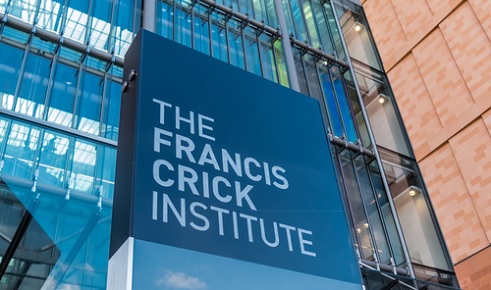Could the UK become a ‘science superpower’?

With input from members, the RSB recently responded to a trio of consultations on the direction, needs and priorities for UK research, including plans for a British version of US research agency DARPA
December 4th 2020
In early October the US president, Donald Trump, was treated for COVID-19 with a range of therapeutics, including a transfusion of monoclonal antibodies. First generated and then developed for medical use at the MRC Laboratory of Molecular Biology, Cambridge, monoclonal antibodies now constitute an industry worth hundreds of billions of pounds, but have been held up as an example of the UK’s failure to commercially capitalise on its scientific discoveries.
The Government has stated its desire to make the UK a ‘science superpower’, creating and more effectively harnessing future opportunities arising from research. In 2019 the Government announced plans for a new UK research funding agency with a remit for high-risk, high-reward research, modelled on the US’s Defense Advanced Research Projects Agency (DARPA). The proposed agency was the subject of an inquiry by the Science and Technology Committee of the House of Commons, launched in April. Later in the year the Department for Business, Energy and Industrial Strategy sought comments on its draft R&D Roadmap and the Treasury called for views on its Comprehensive Spending Review. The Society, with the help of its members, has responded to all three consultations.
First we emphasised the necessity and potential of biology research, as well as its sheer breadth. Too often the term ‘life sciences’ is used in government to mean solely pharmaceuticals and biomedicine. We took the opportunity to remind those in Westminster that we use ‘life sciences’ to describe all areas of the science of life, from molecules through whole organisms to ecosystems, and across all biological specialisms. Regarding plans for a UK DARPA, we noted the potential for innovation in crop science, synthetic biology and biomanufacturing, among other areas.
With the COP26 climate summit postponed to November 2021 our responses this year have aimed to keep the climate emergency high on the agenda, as well as biodiversity loss and other challenges encapsulated in the UN Sustainable Development Goals. These are challenges at least as significant as COVID-19, and ones that science and innovation can help to address, and we urged the Government to give them greater importance in its spending priorities.
 DARPA funds a vast range of fundamental research, from disease prevention to AI and robotics
DARPA funds a vast range of fundamental research, from disease prevention to AI and roboticsThe full responses to these inquiries describe many other areas that are no less important, including the importance of minimising disruption due to COVID-19 at all levels of education, the value of international collaboration, the need to ensure the right regulatory environment, and the centrality of ensuring a skilled and diverse workforce in order to achieve any of these ambitions. These responses are available in our Policy Resource Library.
The coming year looks set to be enormously consequential in the arena of science policy. In November 2021 the UK will host the COP26 climate summit, an essential chance for the global community to step up the ambition for emissions reductions. A summit of the UN Convention on Biological Diversity will meet in May to agree new targets for global biodiversity. The Horizon Europe research programme starts on 1 January 2021, and at the time of writing in early November the UK’s participation is yet to be agreed.
Amid a global pandemic the UK science base has not only found the first life-saving drug – dexamethasone – but also produced a leading vaccine candidate through the AstraZeneca Oxford trial. We will continue working in support of a research environment in which UK science can thrive across all areas of biology.
Jonathan Carruthers is senior science policy officer at the RSB


